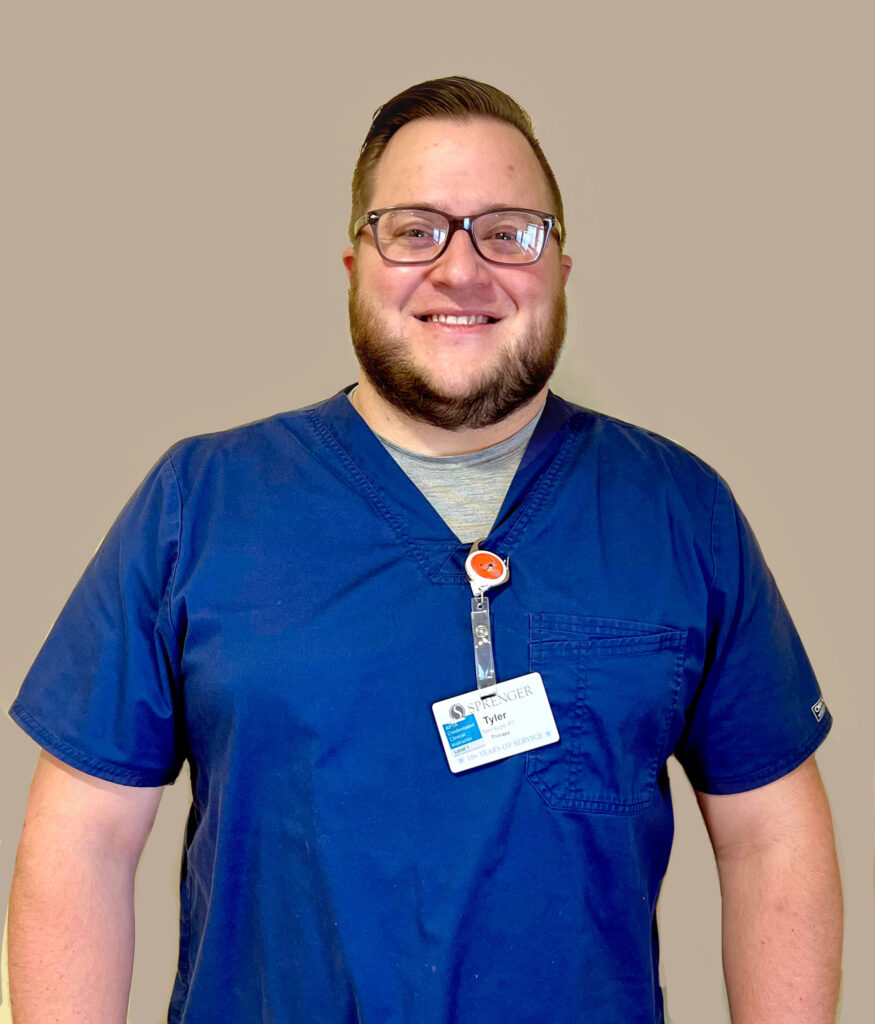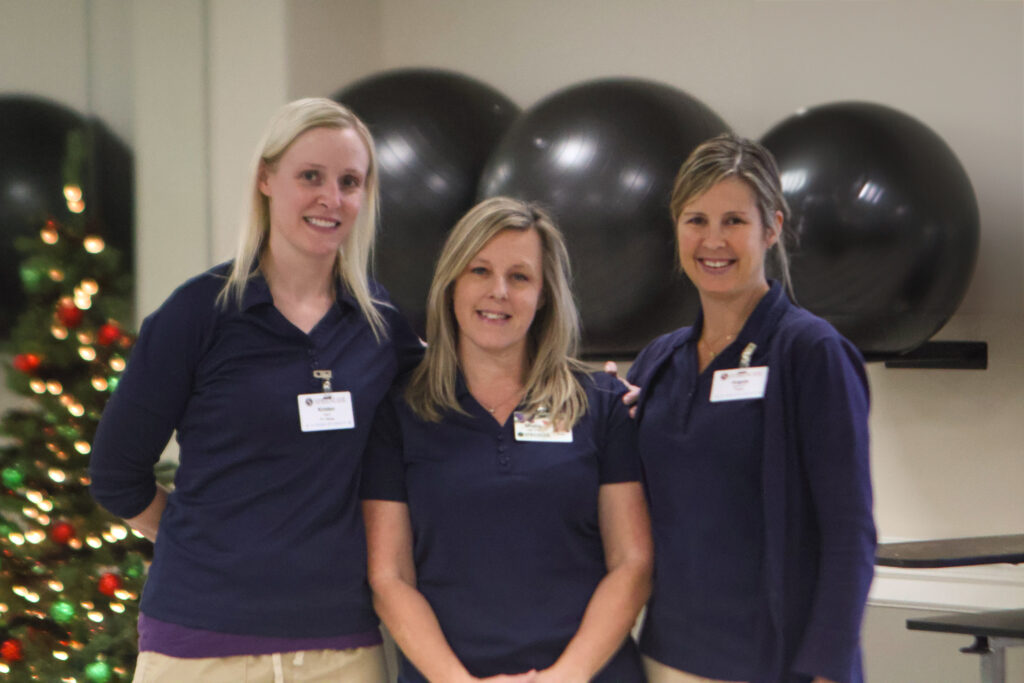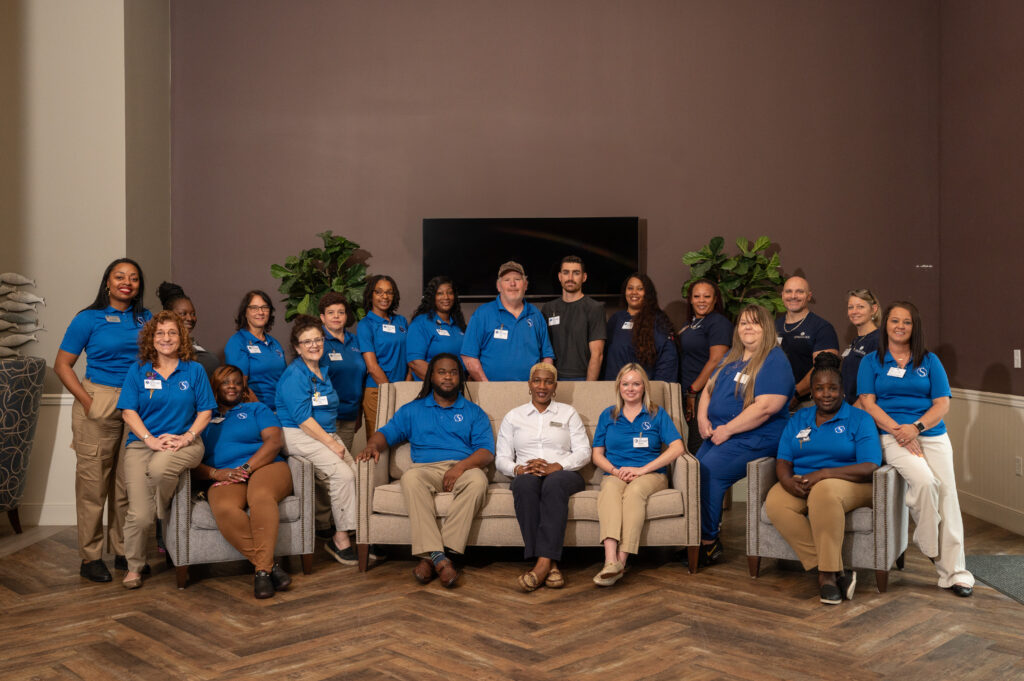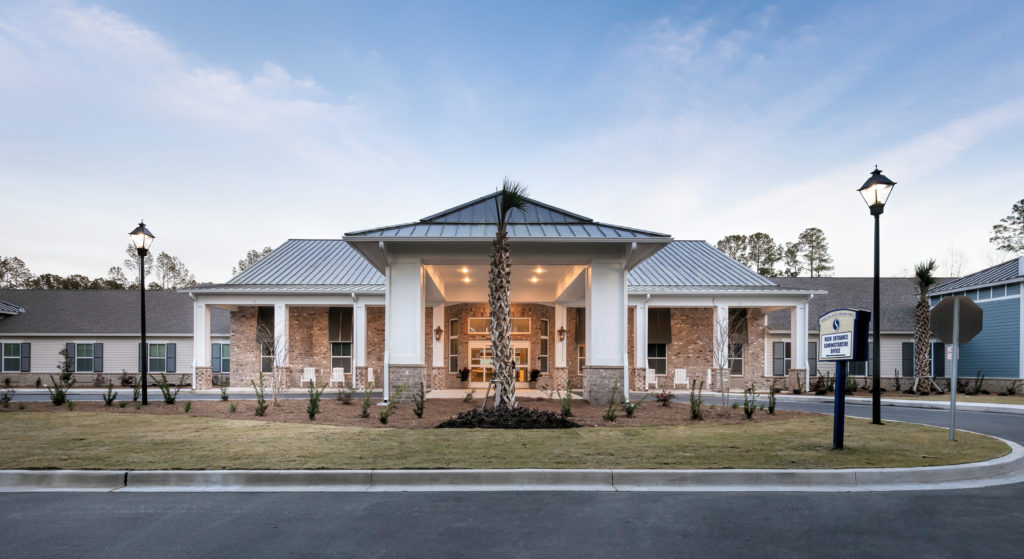Vestibular issues are often caused by an imbalance between the left and right vestibular organs in the inner ear and tend to disrupt a person’s sense of balance and spatial orientation, causing frequent symptoms such as dizziness, blurred vision, and changes in balance and hearing. Vestibular rehabilitation is a specialized approach to managing these symptoms, focusing on exercises that are designed to retrain the brain and enhance the vestibular system’s function. Those who participate in vestibular rehabilitation often see significant improvements in dizziness, blurred vision, balance, and have an increased confidence in daily activities, contributing to a higher quality of life.
What is Vestibular Rehabilitation Therapy?
Vestibular rehabilitation is a type of physical therapy that targets the vestibular system, which includes parts of the inner ear and brain responsible for processing sensory information related to balance and eye movements. When this system is compromised due to illness, injury, or aging, vestibular rehabilitation helps to retrain the brain and restore its normal function by addressing the root causes of dizziness and imbalance through targeted exercises.
The main goals of vestibular rehabilitation are to reduce dizziness, improve balance, and increase overall activity levels in individuals dealing with associated symptoms.
Vestibular rehabilitation is designed for individuals with a wide range of vestibular disorders, such as:
– Vertigo
– Ménière’s disease
– Benign paroxysmal positional vertigo (BPPV)
– Labyrinthitis
– Vestibular neuritis
– Migraine headache
– Complications post stroke
– Traumatic brain injury (TBI)
– Frequent falls
Sprenger Health Care Rose Lane now offers vestibular rehabilitation. Call (330) 837-6270 for more information.
Life Enrichment in Senior Living CommunitiesLife enrichment programs are designed to boost the physical, social, and cognitive engagement of older adults. Senior living communities have increasingly recognized that a meaningful life is about more than just medical attention — it also includes fostering the social, emotional, and intellectual well-being of the senior. Life enrichment programs play a vital role in this process, offering seniors increased independence, entertainment, and socialization while residing in a senior living community.
What Are Life Enrichment Programs?
Life enrichment programs in senior living communities offer structured activities designed to promote senior’s physical, mental, and emotional well-being, and are often tailored to the interests, abilities, and preferences of residents, ensuring that they are accessible for all participation. These programs include exercise classes, music and art activities, cooking lessons, gardening, social events, and much more.
Benefits of Life Enrichment Programs
- Supporting Cognitive Health
Keeping the mind engaged is crucial for seniors, particularly in delaying or reducing the effects of cognitive conditions, such as dementia and Alzheimer’s disease. Life enrichment programs often feature brain games, puzzles, and learning opportunities that encourage mental stimulation, like reading clubs, art classes, or learning new technology skills, helping seniors remain intellectually active.
- Keeping Seniors Active
Physical activities are a cornerstone of life enrichment programs, ensuring that residents stay active, maintain mobility, and improve their overall health. These activities can help improve circulation, muscle strength, and flexibility through light exercise classes, dance sessions, walking groups, or other active games and outings. These programs are designed to accommodate different levels of mobility, ensuring they are accessible for all seniors who would like to participate.
- Building Social Connections
Loneliness and isolation are significant concerns in senior living communities, potentially stemming from a change in lifestyle. Life enrichment programs provide structured opportunities for residents to connect with one another, fostering friendships, and building a sense of community through group activities, social events, and outings.
Life enrichment programs are essential for creating a vibrant lifestyle for seniors in senior living communities. By providing opportunities for physical, mental, and creative engagement, these programs ensure that residents continue to lead active and meaningful lives, while fostering better health, stronger social connections, and an overall greater sense of happiness. After all, the later years of life should be filled with joy, growth, and opportunities to thrive.
Find Sprenger Health Care’s monthly life enrichment activity calendars here.
200 Years of Service: How Sprenger Health Care’s Therapy Team Exceeds Two CenturiesIn November, Tyler Sponaugle, a Physical Therapist from Sprenger Health Care Rose Lane hosted two company-wide, free CEU programs specializing in vestibular rehabilitation, in which dozens of Sprenger’s therapists attended. Tyler began his therapy career with Sprenger Health Care over 10 years ago, and has recently obtained a specialization in vestibular rehabilitation, in which he aims to continue assisting the community and other therapists gain knowledge on the topic through outreach and CEUs. These CEUs were held at Towne Center in Avon Lake, Ohio, and Heather Knoll Nursing and Rehabilitation in Tallmadge, Ohio, to provide accessibility to the therapists commuting from the other surrounding Sprenger facilities.

Many of the therapists in attendance had worked within Sprenger Health Care Systems for a decade or more, which had the group thinking – how many years of combined experience have they all had while employed with Sprenger?
The answer spans more than 200 years of therapy experience within the South Sprenger Health Care facilities alone, in total resulting in 363 years from all Sprenger Health Care Systems, and even more in overall clinical experience!
Many of the therapists in the photo above began their careers with Sprenger and overtime have grown throughout the company, building on learned, hands-on experience and one-on-one mentoring.
This is the case with Angie Maurer, OTR/L. In 2009 she was in her final year of graduate school at Cleveland State University, when she attended an Occupational Therapy conference and had the opportunity to chat with leadership from Sprenger Health Care Towne Center. Here, she learned that the only years-old, newly constructed nursing facility was in Avon Lake, Ohio, Angie’s hometown. She, along with a handful of her classmates, were given the opportunity to begin their career with Sprenger Health Care, all of which remain employed with the company!
Angie has been an Occupational Therapist with Sprenger Health Care since the very beginning of her career, working at Towne Center for nearly 15 years. Angie stated, “I love working here, at Towne Center. The people are amazing; We all work together, bouncing ideas off one another. Physical, occupational, and speech therapists work as one unit, making sure that our residents get the best care that we can provide. Everyone here is just amazing – the nurses, the environmental staff, everyone!”
For Mistie Hall, PTA, she has had a similar experience to Angie. Mistie went to Lorain County Community College and received a degree in Applied Science, continuing on to become a certified Physical Therapy Assistant, which is a career that she has worked in for nearly 20 years. She began her career in a neighboring hospital, and then transitioned into a travel position, which is how she happened across Sprenger Health Care. She began working for Sprenger Health Care Systems almost 17 years ago, at Autumn Aegis in Lorain, Ohio. For her first few years with Sprenger, she traveled around to other local Sprenger facilities, such as Anchor Lodge, Amherst Manor, and Elms Retirement Village, but 12 years ago, she decided to make a permanent home at Towne Center, where she has been ever since.
In December 2023, Mistie took over an exercise class held twice a week in Towne Center’s Independent Living, assisting residents with physical activities to continually improve their health and independence. The class has exponentially grown since Mistie has taken over, and it is just one small piece of her time at Sprenger that she values dearly. Mistie’s end-career goal is to eventually retire with Sprenger.
Kristen Matus, PT, DPT, has been with Sprenger Health Care for exactly half of her career, nearing a decade. She graduated from Toledo University in the Fall of 2006 and began working as a Physical Therapist in January of 2007. In 2016, some of Kristen’s friends persuaded her to try out a new avenue with Sprenger, and so she did. Out of her 18-year long Physical Therapy career, Kristen has spent 9 of those years with Sprenger Health Care, and she doesn’t plan to leave anytime soon. In fact, Kristen hopes to continue her growth at Towne Center by promoting continued positive development with the outpatient therapy caseload. She stated that her goal is to “help the community by providing care.”
Flourishing Careers

Angie, Mistie, and Kristen are just a few of the many therapists who have chosen Sprenger Health Care as a place to flourish their career. Not only has their career grown over time, but the relationships they have garnered have given them family-like friendships in both co-workers and residents. Angie stated that the one part of her job that she enjoys the most is being able to go to work and enjoy her time spent with all of the residents, but especially the residents who reside in long-term care, who she has known and worked with for years.
Sprenger Health Care Systems is an ever growing 12-nursing home, 10-assisted living, and 8-independent living enterprise, employing more than 2,000 professionals, located in Ohio and South Carolina. If you are interested in joining Angie, Mistie, Kristen, and the dozens of other devoted therapy professionals, search our open positions here.
Reducing the Holiday Blues in Nursing FacilitiesAs the holiday season quickly approaches, garland and tinsel temporarily adorning most homes, you may feel more cheerful than you have all year. We often gather with family and friends, eating, chatting, reminiscing of the past, and what our future entails. Spreading love, kindness, and cheer by giving gifts or making holiday cookies. However, there are some, specifically older adults, that have a more difficult time getting into the holiday spirit.
For many seniors, the holiday season may have a new meaning. Instead of setting out cookies and milk for Santa, or traveling to long-distance relative’s homes, the absence of these traditions may leave the holiday season seeming like a thing of the past.
Some factors that may contribute to holiday depression among the elderly include:
- Absence of parents, siblings, friends, and children (feeling alone)
- Separation from loved ones
- Financial limitations
- Loss of independence
- Loss of mobility
- Failing eyesight (lessening the ability to read/write holiday correspondence)
- Medical diagnosis
These changes may result in feeling subdued or sad, which is a normal reaction to facing change and generally temporary, the person eventually returning to their normal mood state, but a case of long-term blues is not a natural part of aging. When these feelings begin interfering with functioning in everyday life, it is considered depression.
Doug Gregory, the Bereavement Coordinator for Sprenger Health Care’s WellSpring Hospice says, “The American Association of Geriatrics Psychiatry, (AAGP) indicates that over 30% of nursing home residents may experience depression which can be exasperated during the holidays due to several factors. Caregivers and facility staff should be aware of changes in behavior and mood with residents.”
Some signs of depression in older individuals may include:
- Questioning the value of life
- Diminished self-esteem
- Excessive feelings of guilt
- Reduced appetite
- Lethargy/lack of energy
- Persistent sadness
- Withdrawal from social activities
- Unusual fidgeting
- Staring off into space (or at the television) for prolonged periods of time
Depression is a medical illness that should be diagnosed and treated by trained professionals. Left untreated, depression may last months or even years.
Gregory also offered a handful of tips in dealing with seasonal depression, saying, “Some preventative measures to consider are: referrals for counseling and psychiatry, bringing in service animals, children’s choirs, and other special activities during high-risk seasons, collecting old holiday cards and decorations to hang on resident’s doors and in their rooms, encouraging family members to purchase scenic window film coverings for the resident’s room, and simply taking time to just sit or talk with these residents. It is essential to differentiate between normal sadness and clinical depression, which requires treatment. If you or someone you know is struggling, professional support can make a significant difference.”
Other things that may help a person with a case of the holiday blues:
- Find ways to include elderly family members/friends in holiday preparation.
- Help with specific tasks.
- Help wrap holiday gifts
- Create crafts to decorate with or give as a gift
- Create or have them walk you through a favorite holiday recipe
- Help fill out and send holiday cards
- If you can’t visit, call.
- Stay busy.
- Facility activities and events
- Make new traditions.
Depression may go past just during the holiday season. Seasonal Affective Disorder (SAD) is a type of depression that comes and goes with the seasons, typically starting in the late fall and early winter and goes away during the spring and summer. A sad mood is linked to lack of sunlight during the winter months due to shorter days.
It is important to note that depressive and suicidal thoughts or actions should never be ignored. If you or a loved one is experiencing any of these symptoms, please take action by calling your doctor, 911, visiting the nearest emergency room, or contacting nursing or therapy staff.
Call the toll-free, 24-hour hotline of the National Suicide Prevention Lifeline at 1-800-273-TALK (1-800-273-8255); TTY: 1-800-799-4TTY (4889) to be connected to a trained counselor at a suicide crisis center nearest you.
Sprenger Health Care Bluffton Received a Deficiency-Free RatingSprenger Health Care Bluffton received a 100% deficiency-free rating on their state survey, conducted by the South Carolina Department of Health and Environmental Control on Friday, November 1, 2024.
The South Carolina Department of Health and Environmental Control (DHEC) annually reviews Skilled Nursing Facilities to ensure that the health and safety conditions focusing their analysis on the residing resident’s safety, security, sanitary, and overall maintenance. To receive a 100% deficiency-free review by the DHEC notes that the facility met the highest possible standards of satisfactory living. Sprenger Health Care Bluffton also received a deficiency-free rating for their Residential Care Facility survey in April of 2024.
Dennis Maddox, Ph.D., MCG, a local professor of Anatomy and Physiology and short-term resident of Sprenger Health Care Bluffton stated, “Being here felt like being at home. Everyone was so nice and sweet in such an amazing way. I am sad to leave, but happy to know I will be home for my birthday and for the holidays.” Mr. Maddox stayed with Sprenger Health Care Bluffton for 6 weeks as he worked through an illness with the nursing and therapy teams, maintaining an end-goal of getting back home and to work.

“We are incredibly proud of our team’s dedication to excellence and quality care, which has been affirmed by our recent deficiency-free survey from DHEC. This achievement reflects the hard work, professionalism, and commitment of every team member to uphold the highest standards in patient care and compliance. Thank you to everyone for making this accomplishment possible and for continually going above and beyond to create a safe, welcoming, and well-maintained environment for our patients and families.”
Dwight Green, the Executive Director at Sprenger Health Care Bluffton
About Sprenger Health Care Bluffton
Sprenger Health Care Bluffton is a 105-bed Long Term Care, Skilled Nursing Facility, and Assisted Living, offering services such as memory care, in-house therapy for short-term rehabilitation, daily activities, served dining, and a VA contract. They also offer Respite Care for those in need. Residents have access to state-of-the-art amenities, such as a 3000+ square foot therapy gym, 65 private rooms in the Skilled Nursing wing, 45 private suites in the Assisted Living wing, a bar that offers a daily happy hour, a 24/7 Chapel, and much more.
Sprenger Health Care Bluffton offers a range of services designed to meet the needs of seniors at different stages of life and health, aiming to create a supportive and caring environment that prioritizes residents’ health, safety, and well-being. The facility provides personalized care, including therapy services, social activities, and wellness programs tailored to enhance residents’ quality of life.
About Sprenger Health Care
From a small family-owned nursing facility to an expansive enterprise employing 2,000 professionals, Sprenger Health Care is actively growing and adapting to the ever-changing needs of the communities they serve. With a strong focus on innovation and quality, Sprenger’s third generation is building a legacy while maintaining the same philosophy of personalized care initially established by Grace Sprenger in 1959.
Sprenger Health Care is a leading developer, owner, and operator of senior living communities and services in Ohio and South Carolina. Through their 12-nursing home, 10 assisted living, and 8 independent living communities, they provide exceptional health care services, including; long-term nursing care, assisted and independent living, memory care, hospice, respite care, and short-term post-acute rehabilitation.
Click here to view all Sprenger Health Care locations.
WellSpring Home Care and HospiceAs each month commences with a theme of national recognition, Sprenger Health Care would like to elaborate on November’s topic of National Home Care and Hospice Month by featuring its own, WellSpring.
WellSpring Home Health & Hospice provide patient-focused and family-centered care to ensure patient-centered, personalized treatment(s) are offered at the highest level possible.
Home health care, just as it sounds, is care that is provided in the home to anyone who may need it, like in instances of limited mobility or education of newly prescribed medication regimens, but also specifically for those who suffer from chronic illnesses, following surgery, or are recovering from acute injury or illness and prefer to remain at home with skilled care. WellSpring’s experienced medical team of Registered Nurses, Nurse Practitioners, Physicians, Social Workers, and therapy professionals provide in-home care, 24 hours a day, 7 days a week, including holidays. Home Health is tailored to each individual’s medical needs and is for adults of any age.
WellSpring Home Health Care is a skilled, Medicare certified and accredited home health care agency dedicated to providing quality, compassionate care to patients and is readily accessible, as the team of skilled professionals visit the home, apartment, independent living, or assisted living apartment. Wherever is called home.
Hospice care, while it is care that can be provided in a person’s residence or in-facility, it is care designated for those with a life-limiting condition. Hospice care is about comfort, dignity, and peace of mind for those dealing with a condition that may no longer offer a cure. Hospice is not about giving up hope, but rather offering a quality of life that outweighs quantity of days. It is about carrying out an individual’s wishes as their trajectory of illness progresses, while managing pain and symptoms, and providing comfort. It is about maximizing a patient’s time with loved ones, and providing emotional, spiritual, and social support to patients and their families. Like home health care, hospice care is a benefit of Medicare and most private insurers. WellSpring Hospice is a Medicare certified and accredited agency, which includes one-on-one attention and quality care with frequent interdisciplinary visits and offers on call services that are available 24 hours a day, 7 days a week, including holidays.
WellSpring Hospice works with your Primary Care Physician alongside our Hospice Medical Directors, Nurse Practitioners, Nurses, Hospice Aides, Social Workers, Spiritual Care Coordinators, Volunteers, and Bereavement Coordinators to provide a holistic care approach that is patient and family centered.
WellSpring Home Health and Hospice offer services in the following Ohio counties: Ashland, Cuyahoga, Erie, Geauga, Huron, Lake, Lorain, Medina, Portage, Sandusky, Stark, Summit, and Wayne.
Contact
WellSpring Home Health
3905 Oberlin Ave, Lorain, OH, 44053
Main Office / 24hr: 1-888-4WELL4U (493-5548)
WellSpring Hospice Care
3905 Oberlin Ave, Lorain, OH, 44053
Main Office / 24hr: 330-486-6092
HospiceReferrals@wellspringcaring.com
This past week, a handful of our Sprenger Health Care facilities hosted a community wide Trick-or-Treat. While no tricks were found, there were plenty of treats and even some animals!
Rose Lane Nursing and Rehabilitation had a special visit from Outback Ray, who brought a hoard of friends with him – SpongeBob the albino python, Mater the tortoise, Snowball the mosaic chinchilla, Ruby the albino milksnake, Ziggy the blue-tongued skink, and Zombie the hairless guinea pig. Many of which seemed to find the top of people’s heads the most comfortable spot to rest.



Village of the Falls hosted their annual Trunk-or-Treat, which was open to the public. The community of Olmsted Falls showed up to enjoy an apple making station and took time to peruse the spookily-decorated trunks! That was, until a scary T-Rex (also known as Snowball, the dog) showed up Jurassic Park-style!



Amherst Manor also joined in on the Trunk-or-Treat fun, where the community of Amherst showed up with over 150 attendees – that’s a lot of candy! The line for the decorated Trunks wrapped around the front of the main building, making it one of the facility’s biggest events! Superman even made sure to stop by for some treats.




Autumn Aegis’ halls were filled with candy, laughter, and lots of Trick-or-Treaters! The residents had the times of their lives as their families joined them to pass out candy to the little ones.





Sprenger Health Care Bluffton hosted a spooky trick-or-treat for residents, families, and their whole community! They had a wide array of events, including a coloring contest, slime-making, a scavenger hunt, and they played the movie ‘Nightmare Before Christmas’ as candy was being collected. They also had some delicious Halloween cupcakes and candied apples!




Candy and costumes are often the center focus of celebrating Halloween, but these Sprenger Health Care facilities made it their goal to ensure each, and every resident had the opportunity to mingle with their beloved community — by passing out or receiving candy, dressing up, painting pumpkins, decorating and perusing trunks, and visiting with staff, friends, and families. That is the true spirit of Halloween!
Our resident at Rose Lane Nursing and Rehabilitation, Robert Patterson a Navy Veteran, received a wish come true through WellSpring Hospice….
Upon a visit with Wellspring Hospice employee, Rebecca Agnew, Patterson said, “I wish I could see 100 motorcycles in this parking lot.” Agnew knew this was a hefty goal, but made it her mission to honor this veteran’s last wishes. And honor it she did!
A quick call to Chris Swogger at the Warrior 2 Warrior Ministry made all the difference! A phone and social media chain with over 3k shares spread within 48 hours grabbing the attention of not only the Warriors membership, but the American Legion Riders-Kent Post 496, the Rolling Thunders, and many other veterans bike groups.
Over 500 individuals-mostly veterans, met at Rose Lane for the ride and to honor Patterson. Prior to the bike parade, the patriotic group led with the Pledge of Allegiance, a prayer and sang a quick Happy Birthday to Patterson who turned 85 a couple days later!
But then they took it a step farther! Why just have Patterson watch the bikes, they decided, let’s have him lead the group instead!
And so he did! With a special police escort thanks to Lieutenant Collins and Officers from the Jackson Police Department, Patterson rode side car on a Harley Davidson 1200 Sportster that led 215 additional bikes with a few jeeps thrown in for good measure! He was surprised to see his route lined with flags by Operation Flags of Freedom and many cheering bystanders.
After the parade was over, Patterson was treated to a reception that included his family and all his new biker veteran “friends”. Many, that had traveled a great distance-including one veteran who had flown in from Texas-a stranger to Patterson, to honor him.
The kindness and goodwill of many individuals put a smile on this veteran’s face that will never be forgotten!
Sprenger Health Care Bluffton Named 2022 Silver Award Winner for “Best Nursing Home”
Sprenger Health Care Bluffton has been named the 2022 Silver Award Winner for “Best Nursing Home” by in The Island Packet and The Beaufort Gazette.
Members of the community voted for Sprenger Health Care Bluffton online as part of the publications’
2022 Lowcountry’s Best Competition. The annual competition relies on the support of the community to
cast their votes in order to highlight the very best of area businesses across multiple industries.
Sprenger Health Care Bluffton is proud to be selected by the community and looks forward to continuing
helping community members stay active, be social and “live their best life” through its skilled nursing,
long-term care, respite care, assisted living, memory care and rehabilitation services.
For information about the facility, please contact our Sprenger Bluffton Admissions Team at (843) 548-
2500.
Sprenger Healthcare’s Smithville Western campus is excited to announce the addition of NxStage Hemodialysis directly at our facility – without having to be transported to an off-site location.
Residents can benefit from on-site hemodialysis 4-5 days per week vs. the conventional 3 days per week in-center. This means shorter treatments, no need for transportation, and more time for rehabilitation and socialization. Treatments are performed in as little as 2-3 hours, per session, in our exclusive den. More frequent hemodialysis treatment reduces the amount of time there is for fluid and toxins to build-up between treatments, resulting in an overall healthier, happier resident.
Since frequent hemodialysis mimics how healthy kidneys function, residents typically experience the following health benefits after treatment:
- Increased energy and vitality
- Improved appetite
- Fewer cardiac-related hospitalizations
- A decrease in the number of medications taken
- A reduction in the amount of stress placed on the heart
- Improved survival